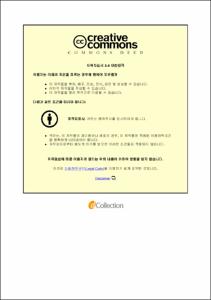LCC항공사 승무원 긍정심리자본이 직무만족에 미치는 영향에 관한 연구
- Alternative Title
- The Effect of Positive Psychological Capital on the Job Satisfaction of LCC Cabin Crews: The Moderating Effect of Safety Consciousness
- Abstract
- The purpose of this study is to examine the effect of positive psychological capital on job satisfaction of airline crews who have a lot of emotional labor, and to investigate the effect of safety awareness control. Therefore, this study recognizes the importance of emotions and emotions of airline crew, and examines the relationship between job satisfaction and four types of positive psychological capital.
The airline crew is responsible for security as well as service. In the limited space of the aircraft, it is necessary to meet the needs of the guests, and as the mental fatigue increases, negative attitudes may result, resulting in lower job satisfaction.
In the crew's work, positive psychological capital is recognized as an important factor that promotes changes in employees' attitudes and behaviors and positively affects the performance of the organization. It is also recognized as a very important factor in improving satisfaction with work and reducing negative attitudes in working with employees.
Thus, this study examined the positive psychological capital of LCC airline crew through the empirical study. For this study, a survey was conducted for LCC airline crew members in Busan. The survey was conducted from August 1, 2019 to August 30, 2019, and a total of 239 copies were used as empirical analysis data except 250 questionnaires, which were judged to be inconsistent or unfaithful in response. The SPSS 25.0 statistical package was also used for frequency analysis, factor analysis, and correlation analysis.
Of the four factors that are sub-concepts of positive psychological capital, the three factors except self-efficacy factors, hopeful factor, resilient factor, and optimistic factor, all have positive effects on job satisfaction.
The findings of this study empirically suggests that positive psychological capital should be well formed and the focus should be on emotion management in order to raise the job satisfaction level of airline crew. In addition, through this study, we have demonstrated the importance of creating positive psychological capital for the LCC airline crew, and we expect it to be a study that will help not only airlines but also the work of safety and emotional labor.
본 연구는 감성노동을 많이 하는 항공사 승무원의 긍정심리자본이 직무만족에 미치는 영향을 알아보고, 안전의식의 조절이 영향을 미치는지 알아보고자 함에 목적이 있다. 따라서 본 연구는 항공사 승무원의 감성과 정서의 중요성을 인식하며 긍정심리자본의 4가지 유형에 따라 직무만족에 미치는 영향관계를 알아보고자 하였다.
항공사 승무원은 서비스뿐만 아니라 보안 안전을 책임져야하는 임무를 가지고 있다. 항공기라는 제한된 공간에서 손님들의 요구를 충족시켜야하며 정신적인 피로가 커짐에 따라 부정적인 태도를 보일 수 있고 그로 인해 직무만족이 낮아질 수 있다.
승무원의 업무에 있어 긍정심리자본은 구성원의 태도와 행동 변화를 촉진시키며, 조직의 성과에 긍정적인 영향을 미치는 중요한 요소로 인정받고 있다. 또한 구성원들과 일함에 있어서 일에 대한 만족도를 높이고, 부정적인 태도를 감소시키는데 있어 매우 중요한 요소로도 인식 되고 있다.
그리하여 본 연구는 LCC항공사승무원들의 긍정심리자본이 직무만족에 영향을 미치는지 실증연구를 통하여 살펴보았다. 본 연구를 위해 부산 소재의 LCC 항공사승무원을 대상으로 설문조사를 실시하였다. 설문조사는 2019년 8월 1일부터 8월 30일 까지 실시하였으며, 총250부를 배포하여 응답에 일관성이 없거나 불성실하다고 판단되는 설문지 등을 제외한 총 239부를 실증분석 자료로 활용하였다. 또한 SPSS 25.0 통계패키지를 사용하여 빈도분석, 요인분석, 상관 관계분석, 회귀분석을 이용하여 분석하였다. 연구결과는 다음과 같다.
긍정심리자본의 하위개념인 4가지 요인 중 자기효능요인을 제외한 나머지 3가지요인 희망성 요인, 복원성요인, 낙관성 요인 모두 직무만족에 정(+)의 유의한 영향을 미치는 것으로 나타나 가설은 부분 채택되었다. 또한, 긍정심리자본과 직무만족관계에서 조절효과가 있을 것 이라는 가설은 부분 채택되었음을 알 수 있었다.
항공사승무원의 직무만족 수준을 높이려면 긍정심리자본이 잘 형성 되어야하며, 정서관리에 집중하여야 한다는 것을 실증적으로 제시한 데에 있어 본연구의 의의가 있다. 또한 본 연구를 통해 LCC 항공사 승무원들의 긍정심리자본 형성에 중요성을 입증하였으며, 항공사뿐만 아니라 안전 및 감성노동을 하는 업무에도 도움을 주는 연구가 될 것으로 기대한다.
- Issued Date
- 2020
- Awarded Date
- 2020. 2
- Type
- Dissertation
- Publisher
- 부경대학교
- Alternative Author(s)
- Hye-Eun Kim
- Affiliation
- 부경대학교 경영대학원
- Department
- 경영대학원 경영학과관광경영전공
- Advisor
- 양위주
- Table Of Contents
- 제1장 서론 1
제1절 연구배경 및 연구목적 1
1. 연구배경 1
2. 문제제기 2
3. 연구목적 3
제2절 연구의 구성 4
제2장 이론적 배경 5
제1절 긍정심리자본 5
제2절 직무만족 12
제3절 안전의식 13
제3장 연구방법 16
제1절 연구모형 및 가설설정 16
가. 연구모형 16
나. 가설설정 17
제2절 변수의 조작적 정의 및 측정문항 19
가. 긍정심리자본 19
나. 직무만족 20
다. 안전의식 20
제3절 자료수집 및 분석방법 22
제4장 실증분석 23
제1절 표본의 인구통계학적 특성 23
제2절 측정도구의 신뢰성 및 타당성 분석 24
가. 신뢰성 분석과 탐색적 요인분석 24
나. 가설의 검증 26
제3절 가설검증 29
제5장 결론 30
제1절 연구결과의 요약 30
제2절 연구의 시사점 32
제3절 연구의 한계점 및 향후 연구과제 34
참고문헌 35
설문지 42
- Degree
- Master
- Appears in Collections:
- 경영대학원 > 경영학과-관광경영학전공
- Files in This Item:
-
-
Download
 LCC항공사 승무원 긍정심리자본이 직무만족에 미치는 영향에 관한 연구.pdf
기타 데이터 / 751.76 kB / Adobe PDF
LCC항공사 승무원 긍정심리자본이 직무만족에 미치는 영향에 관한 연구.pdf
기타 데이터 / 751.76 kB / Adobe PDF
-
Items in Repository are protected by copyright, with all rights reserved, unless otherwise indicated.